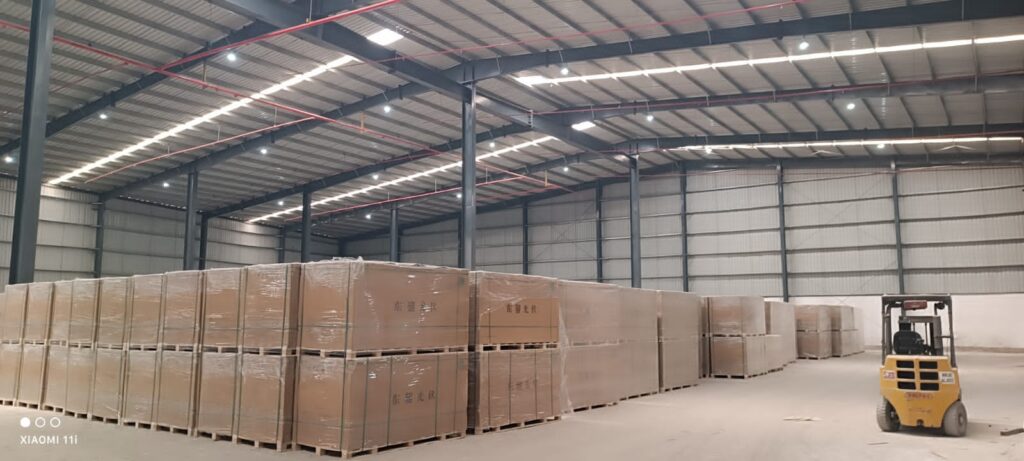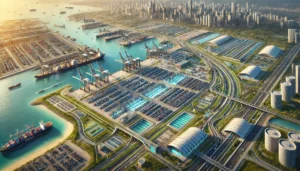
- contactus@unospacesaviors.com
- +91 9372796516
- Home
- About Us
- Who Are We
- Our Services
- Regulatory Approvals
- Design & Planning
- Project Management Consultancy (PMC) Consultants
- Project Feasibility Report & Site Analysis
- Turnkey Contractors
- Stall Designing Firm
- Interior Design
- 3D Modeling and Visualization
- Urban Planning and Master Planning
- Redevelopment Tender & Contractor Assistance
- Specialized Services
- Blogs
- Home
- About Us
- Who Are We
- Our Services
- Regulatory Approvals
- Design & Planning
- Project Management Consultancy (PMC) Consultants
- Project Feasibility Report & Site Analysis
- Turnkey Contractors
- Stall Designing Firm
- Interior Design
- 3D Modeling and Visualization
- Urban Planning and Master Planning
- Redevelopment Tender & Contractor Assistance
- Specialized Services
- Blogs
Current Trends in Warehousing in Terms of Regulatory Approvals in Mumbai

The warehousing sector in Mumbai is evolving rapidly, not just in terms of technology and infrastructure but also regarding regulatory approvals. Navigating the regulatory landscape is crucial for developers and businesses looking to establish or expand their warehousing facilities in the city. Here’s a look at the current trends in regulatory approvals for warehousing in Mumbai.
Streamlining of Approval Processes
In recent years, there has been a concerted effort by various government bodies to streamline the approval processes for warehousing projects in Mumbai. The aim is to reduce bureaucratic delays and make it easier for developers to obtain the necessary clearances. Authorities like the Maharashtra Industrial Development Corporation (MIDC), Mumbai Metropolitan Region Development Authority (MMRDA), and City and Industrial Development Corporation (CIDCO) have introduced online portals for faster processing of applications. These digital platforms allow for real-time tracking of application status, reducing the overall time for approvals.
Introduction of Unified Development Control Rules (UDCR)
The Maharashtra government introduced the Unified Development Control and Promotion Regulations (UDCPR) in 2020, which brought a standardized set of rules for construction and development across the state, including warehousing. This has significantly impacted warehousing approvals in Mumbai by providing a uniform regulatory framework. The UDCPR includes provisions related to the height of warehouses, Floor Space Index (FSI), and the use of materials, which have simplified the approval process for developers.
Focus on Compliance with Environmental Regulations
Environmental compliance is a critical aspect of regulatory approvals in Mumbai, particularly for large-scale warehousing projects. Developers must obtain clearances from the Maharashtra Pollution Control Board (MPCB) and adhere to the guidelines set by the Ministry of Environment, Forest and Climate Change (MoEFCC). The growing emphasis on sustainability has led to stricter enforcement of environmental norms, including waste management, water conservation, and energy efficiency. Developers are now incorporating eco-friendly designs and practices to ensure smooth approval processes.
Zoning and Land Use Regulations
Zoning laws and land use regulations play a pivotal role in warehousing approvals in Mumbai. The city’s Master Plan and Development Control Regulations (DCR) dictate where warehousing facilities can be developed. There is a growing trend of rezoning land in peripheral areas of Mumbai, such as Bhiwandi, Panvel, and Taloja, to accommodate the increasing demand for warehousing space. This has led to a more structured and predictable approval process for developers seeking to build in these designated industrial zones.
Fire Safety and Building Code Compliance
Fire safety is a top priority in the warehousing industry, and compliance with the National Building Code (NBC) and the Maharashtra Fire Prevention and Life Safety Measures Act is mandatory for obtaining regulatory approvals in Mumbai. Warehouses must be equipped with fire detection and suppression systems, adequate fire exits, and emergency response plans. The approval process involves rigorous inspections by the Fire Department to ensure that all safety measures are in place before granting occupancy certificates.
Focus on Infrastructure Development
Infrastructure development, particularly in terms of connectivity, is a critical consideration for warehousing approvals. Authorities like MMRDA and MIDC are working on improving infrastructure in industrial zones to support warehousing activities. This includes the development of roads, power supply, and water connections. Warehousing projects that align with these infrastructure development plans are more likely to receive expedited approvals.
Ease of Doing Business Initiatives
The Government of Maharashtra has been actively promoting the “Ease of Doing Business” initiative, which has a significant impact on regulatory approvals for warehousing. The state has introduced several reforms, such as single-window clearances and time-bound approval processes, to make it easier for businesses to set up warehousing facilities. These initiatives aim to attract more investment into the warehousing sector by simplifying the approval process and reducing the regulatory burden on developers.
Emphasis on Legal Clearances and Documentation
Obtaining the necessary legal clearances and ensuring proper documentation is becoming increasingly important in the approval process. This includes acquiring land title clearances, No Objection Certificates (NOCs) from various departments, and adhering to labor laws. Developers are now more focused on ensuring all legal aspects are in order before applying for approvals to avoid delays and potential disputes.
Conclusion
The regulatory landscape for warehousing in Mumbai is undergoing significant changes, with a focus on streamlining processes, ensuring compliance with environmental and safety norms, and improving infrastructure. These trends are making it easier for developers to obtain the necessary approvals while ensuring that the warehousing facilities in the city meet high standards of safety, sustainability, and efficiency. As the demand for warehousing space continues to grow, staying updated with these regulatory trends will be crucial for businesses and developers alike.

About Us
Our firm is a leading architectural liaison and design firm,
recognized for our dual expertise in regulatory approvals and
innovative, sustainable design solutions.
Address
Uno Space Saviors
Haware Fantasia Business Park
203,Sector 30A, Vashi, Navi Mumbai
Maharashtra 400705
+91 9372796516
contactus@unospacesaviors.com
Haware Fantasia Business Park
203,Sector 30A, Vashi, Navi Mumbai
Maharashtra 400705
+91 9372796516
contactus@unospacesaviors.com
© 2024 UNO Space Saviors. Developed By Kloud Innovisionz.




